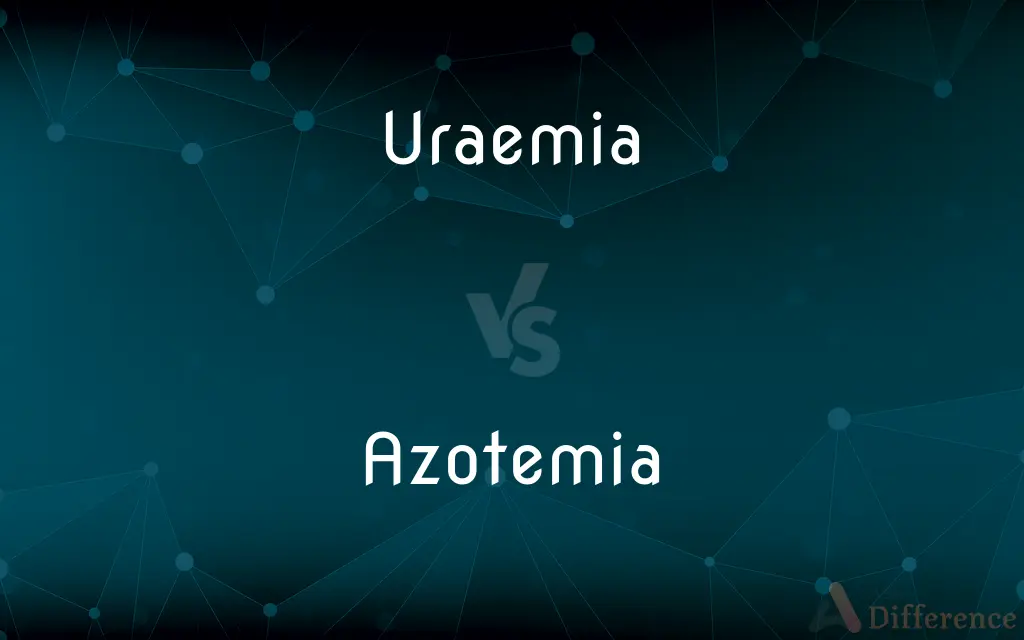Uraemia vs. Azotemia — What's the Difference?

Difference Between Uraemia and Azotemia
ADVERTISEMENT
Compare with Definitions
Uraemia
Variant of uremia.
Azotemia
Azotemia (azot, "nitrogen" + -emia, "blood condition") is a medical condition characterized by abnormally high levels of nitrogen-containing compounds (such as urea, creatinine, various body waste compounds, and other nitrogen-rich compounds) in the blood. It is largely related to insufficient or dysfunctional filtering of blood by the kidneys.
Uraemia
Alternative spelling of uremia
Azotemia
See uremia.
Uraemia
Accumulation in the blood of the principles of the urine, producing dangerous disease.
ADVERTISEMENT
Azotemia
(pathology) The accumulation in the blood of nitrogen-bearing waste products (such as urea) that are usually excreted in the urine.
Uraemia
Accumulation in the blood of nitrogen-bearing waste products (urea) that are usually excreted in the urine
Azotemia
The accumulation of an abnormally large amount of nitrogen-containing waste products, such as urea, in the blood; uremia.
Azotemia
Accumulation in the blood of nitrogen-bearing waste products (urea) that are usually excreted in the urine
Share Your Discovery

Previous Comparison
Modelized vs. Modelize
Next Comparison
Collective vs. Community













































